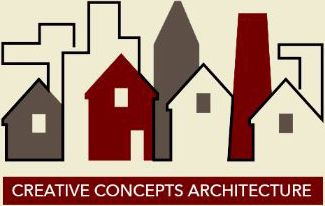FAQs
Creative Concepts Architecture
Have an architecture-related question? We have the answer. Check out these FAQs and give us a call today for more information!
-
What does a residential architect do?
Describe the item or answer the question so that site visitors who are interested get more information. You can emphasize this text with bullets, italics or bold, and add links. -
Why should I hire a residential architect instead of using a home builder’s plans?
Describe the item or answer the question so that site visitors who are interested get more information. You can emphasize this text with bullets, italics or bold, and add links. -
How much does it cost to hire a residential architect?
At Creative Concepts Architecture, our costs vary based on project complexity and scope. In our experience, architects typically charge a percentage of construction costs (8-15%), a flat fee between $5,000 - $40,000, or an hourly fee in the range of $150 – $250 per hour.
-
How long does it take to design a house with an architect?
When you work with our architects, the design phase can take anywhere from a few weeks to several months, depending on the project's complexity, client revisions, and permit approvals. The overall length of time is more dependent on how quickly decisions can be made, though the architect's workload also plays a small role.
-
Do I need an architect for a remodel or addition?
While not always required, hiring an architect for major renovations or additions ensures structural safety, cohesive design, and compliance with local regulations, and that budgetary constraints are met. When you work with our architects at Creative Concepts Architecture, you can rest assured that the job will be done right.
-
Can a residential architect help with energy efficiency and sustainability?
Yes! They can incorporate strategies that reduce energy use, lower utility costs, and create a healthier living environment. Architects can design homes with sustainable materials, energy-efficient layouts, passive solar design, and smart home technology to reduce environmental impact. According to Grand View Research, by the year 2030, the architectural services market is forecasted to grow at a CAGR of 4.9%. As the field continues to grow, it's important to be sure you're working with an architect who values sustainability. When you choose our team at Creative Concepts Architecture, you can rely on us to include energy efficiency in our plans.
-
What should I bring to my first meeting with a residential architect?
For your first meeting with one of our architects, be sure to bring inspirational photos, a list of must-haves, a budget estimate, site details (if available), and any local building regulations or HOA rules that might affect the design.
-
How involved is the design process?
Homeowners typically work closely with architects, providing feedback on concepts, materials, and layouts to ensure the final design aligns with their vision. Designing a home is an iterative process, requiring ongoing collaboration between the homeowner and architect. Each decision impacts the next, so it’s essential to continuously refine the design to align with the overall vision, functionality, and budget. The iterative approach helps reduce costly changes during construction while ensuring the final home is a perfect reflection of the homeowner’s vision.
-
Can a residential architect work with my contractor?
Yes, architects collaborate with contractors to ensure the design meets the budgetary requirements during the design phase. During the construction phase, they may also provide construction oversight or project management. Architects provide guidance through unexpected issues that arise during construction, from site conditions, or material delays.
-
What is the difference between an architect and a home designer?
Architects are licensed professionals who can handle structural planning and code compliance. We've found that in Iowa, this typically requires five years of college education, three years of internship, and five licensing exams. Home designers focus on aesthetics and layouts without the same level of technical training or licensing.

Share On: